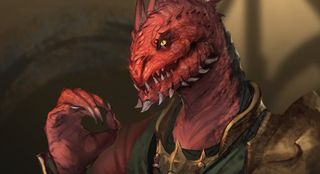PUBG tops premium PC digital market with $714 million in 2017
But free-to-play games like League of Legends and Dungeon Fighter Online still dominate overall.

Videogame research firm Superdata recently released its 2017 Year in Review report, which among other things breaks down how much money we spend on our games, and which ones we most like to throw it at. The big winner among premium PC games last year was, unsurprisingly, Playerunknown's Battlegrounds, which pulled in an estimated $714 million.
That amount nearly doubles the revenues earned by the second-place finisher, Blizzard's mega-hit hero shooter Overwatch, which pulled in an estimated $382 million in 2017. Counter-Strike: Global Offensive came in third with $341 million, followed by Destiny 2 at $218 million, and Grand Theft Auto 5 at $118 million.
Those numbers are nothing to sneeze at, but they still fall well short of the real heavyweights in the free-to-play division, which accounted for 69 percent of the $33 billion PC gaming market. League of Legends led that pack with estimated $2.1 billion in revenue in 2017, followed by Dungeon Fighter Online, which pulled in $1.6 billion, and CrossFire, which managed $1.4 billion. World of Tanks and Dota 2 are more down-to-Earth, relatively speaking, but still outclass all premium games but PUBG at $471 million and $406 million respectively.
"While MOBAs bookend the top-five free-to-play rankings, most of the revenue generated came from RPGs (34 percent) and shooters (22 percent)," the Superdata report says. "This trend is mirrored in the annual growth of the genres: RPGs and shooters grew by nine percent and 13 percent respectively compared to a stagnant increase of three percent for the MOBA genre."
The report also contains what appears to be a good-news story of particular interest to indie gaming fans: Larian's Divinity: Original Sin 2 made it into Superdata's top-ten premium games list, with $85 million in revenues, dropping it between Guild Wars 2 ($87 million) and Rainbow Six Siege ($67 million). That's a remarkable accomplishment for a studio that famously "murdered" a project so it could keep the lights on and finish one it really believed in.

There's just one problem with that story: Larian boss Swen Vincke says it's not so. Divinity: Original Sin 2 is a hit, yes, but not nearly to that degree.
"If only that were true," he said. "I don’t know where they got that data but we’re currently at 1.3M units, so even if you disregard VAT, the cut Steam and GOG take, and the price differences per country (i.e. you assume we sell the game at $45 everywhere), you still don’t get to $85 million. My faith in Superdata numbers received a big blow today. But that doesn’t take away that we’re still super happy about so many people picking up D:OS 2."
PC Gamer Newsletter
Sign up to get the best content of the week, and great gaming deals, as picked by the editors.
Superdata explained the discrepancy in a follow-up statement saying that its estimates are "based on partnerships with publishers, developers and payment providers," which enable the creation of "bottom-up algorithms for individual games based on the point of sale tracking data of over 160 million paying customers."
"Occasionally we see differences in definitions and recognition for revenue—for example, when people are reporting gross vs net revenue (SuperData is always gross), deferred revenue, non-GAAP accounting practices, and other allocations which may show different figures depending on the source. For compliance reasons, we also don't typically comment on feedback from private companies—who may be motivated by investor concerns—outside of a formal data relationship," a rep said. "However, Divinity: Original Sin 2 was a breakout success in 2017—commercially and critically—and we congratulate Larian."
Andy has been gaming on PCs from the very beginning, starting as a youngster with text adventures and primitive action games on a cassette-based TRS80. From there he graduated to the glory days of Sierra Online adventures and Microprose sims, ran a local BBS, learned how to build PCs, and developed a longstanding love of RPGs, immersive sims, and shooters. He began writing videogame news in 2007 for The Escapist and somehow managed to avoid getting fired until 2014, when he joined the storied ranks of PC Gamer. He covers all aspects of the industry, from new game announcements and patch notes to legal disputes, Twitch beefs, esports, and Henry Cavill. Lots of Henry Cavill.
Most Popular






